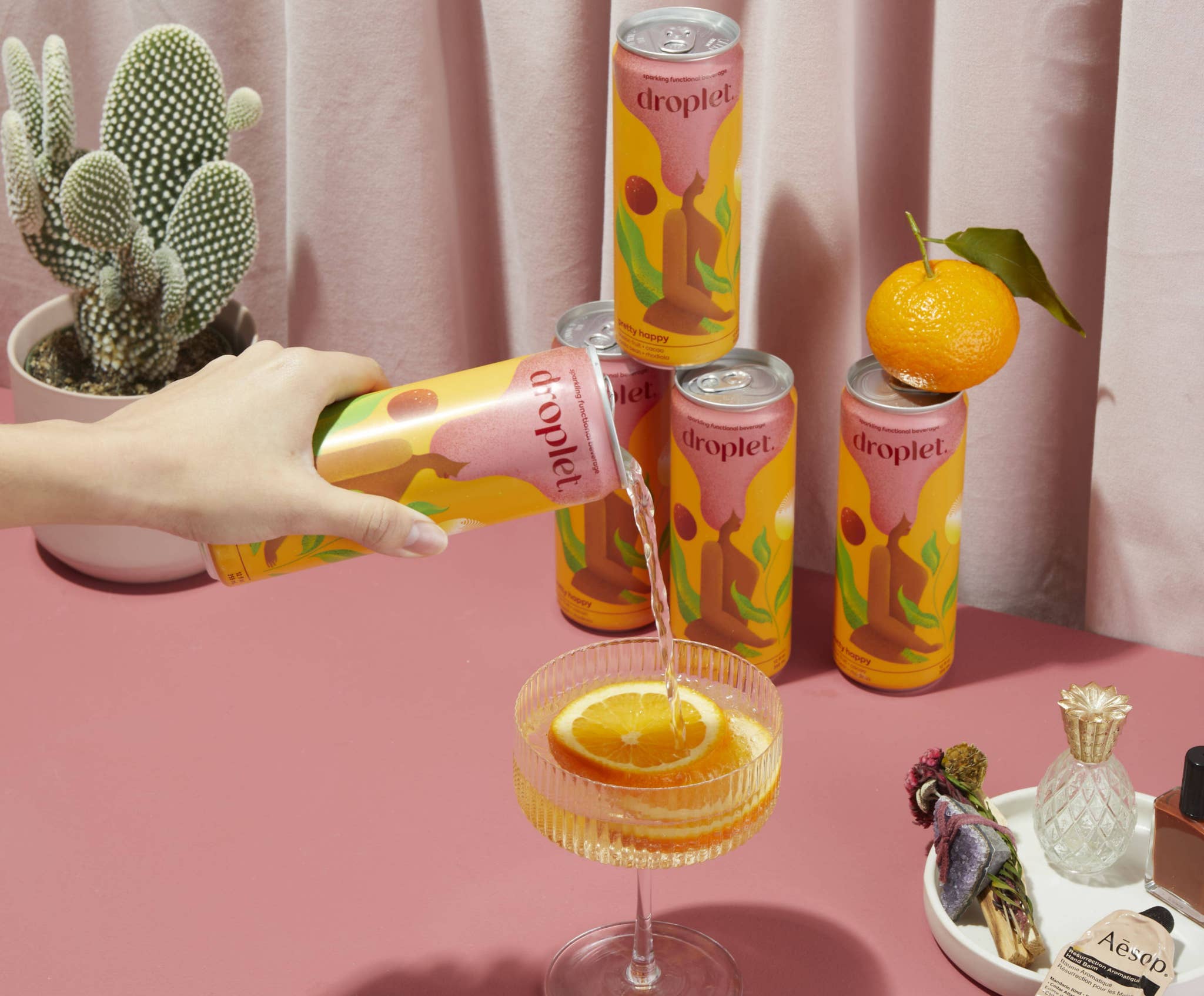
Starting a brand is difficult. But scaling once it’s established can be even harder. From market instability and growing a team to the wild whims of social media and the need to, well, be needed, there are a multitude of hurdles to overcome if you want your business to stand the test of time.
During Entrepreneur Faire (a free, Faire-hosted educational series streamed on Instagram Live), we got a chance to sit down with a few of our merchants to hear their founding stories—their challenges and successes—as they discovered growth and gained exposure despite an uncertain market.
Below you’ll find three key learnings from Celeste Perez, co-founder and CEO of Droplet, Patrick Chism, VP of marketing and operations at Big Moods, and Dan Gutstein, Vice President of Strategy and Growth at Well Told. From providing personalized products that elicit joy to owning up to when you need help, these lessons are pivotal (and transferable) no matter what you’re selling.
Make business personal
Well Told is a personalized home goods, drinkware, and accessories company. Think: a rocks glass etched with the streets of your hometown, an insulated tumbler with your marathon route, and a carafe featuring the exact view of the stars on the night you got engaged. The company’s tagline, “Your Story Well Told,” reflects the company’s mission to connect with consumers and provide them with a lasting token that’ll elicit nostalgia and joy with every use.
Well Told was founded in Boston in 2009 as a direct-to-consumer business, then expanded into wholesale with Faire. Today, Well Told products can be found in about 1,500 stores across the country, with items that speak to the communities they’re in, whether that’s a wine glass with a map of Toledo or a cozy blanket with the Boston marathon route. By being hyper-personalized, Well Told provides products that are truly curated for its customers.
But as a wholesaler, Well Told isn’t just focused on his end customers. He also works to maintain that personal touch with retailers.
Retail strategy coach Kristin Fisher (who we also spoke to at Entrepreneur Faire) recommends that when you’re communicating with a retailer for the first time, make sure your outreach is clearly personalized—they’ll know if it’s a copy-paste job. Taking the time to communicate what makes your product special and why it’s the perfect fit for their store goes a really long way.
And this isn’t just for first-time communications. Even as Well Told’s operation has grown exponentially over the years, being a good partner to each individual store owner continues to be a top priority. To support this, he doubles down on Faire’s messaging features, keeping the lines of communication open. He also diversifies product offerings as much as possible, especially for towns that have multiple stores. This ensures he’s not oversaturating the market and cannibalizing store sales. He knows his success doesn’t stem from resonating with only his customers but also from ensuring store owners are just as excited about getting his products into their hands.
Have infrastructure in place for when demand spikes
Big Moods makes stickers. Lots of them. Whether it’s a sticker that says, “But first, pumpkin spice latte,” or “That’s the tea, sis,” Patrick Chism and his team are dedicated to helping customers express themselves and spread happiness.
That’s why Big Moods has a sticker of that iconic (grumpy) Bernie Sanders meme and ones that celebrate nurses and teachers for their work during the pandemic. If there’s a viral moment, Big Moods is on it: They release over 100 new stickers every month.
While being on the cusp of current events and trends can provide great exposure, it can be hard to keep up with infrastructure when your orders double, triple, and quadruple. When that happened to Big Moods, Patrick stayed on top of things by getting organized, creating processes, and increasing team communication. Now he uses the project management tool Asana to ensure that every member of the team knows what’s happening and when. It also helps him identify bottlenecks if and when they arise. That way, when the next viral trend hits, his team is ready to go.
As your brand grows, own your glow-up
Much like Big Moods, Droplet experienced a viral bump over a three-day period with Faire. The adaptogen drink’s founder, Celeste Perez, went from having just a few followers to over 16,000 in a night. (In retrospect, it’s no surprise a drink that provides self-care with stress-soothing adaptogens and superfoods resonated with the pandemic world!)
The traditional way to grow a beverage business would be to partner with a distributor. But amid pandemic uncertainty—she launched in March 2020—that route wasn’t available to her. This became an issue as orders started to pile up so high that her fulfillment space in the back of the Wanderlust Creamery couldn’t keep up.
To manage her glow-up, Celeste decided to work with a fulfillment center. She also stopped hand-writing thank-you cards with every order, a touch she loved but realized simply wasn’t sustainable for a product that’s now carried in over 500 stores. “At the end of the day, what I love knowing is that we have this product that is in demand,” says Celeste. “It’s just a matter of us being able to manage [that demand] in a way that’s sustainable for us but also keeps our customer happy.”
One strategy that Droplet, Big Moods, and Well Told all use and attribute to their success is that they seek out unconventional channels for marketing, whether that’s attending expos to network or using Faire to connect to a wider group of retailers. Perhaps it was the pandemic that made them rethink traditional methods or a viral post that elicited more growth than they were ready for, but thinking outside the box got them where they are today—with products bringing joy and wellness to consumers everywhere.

